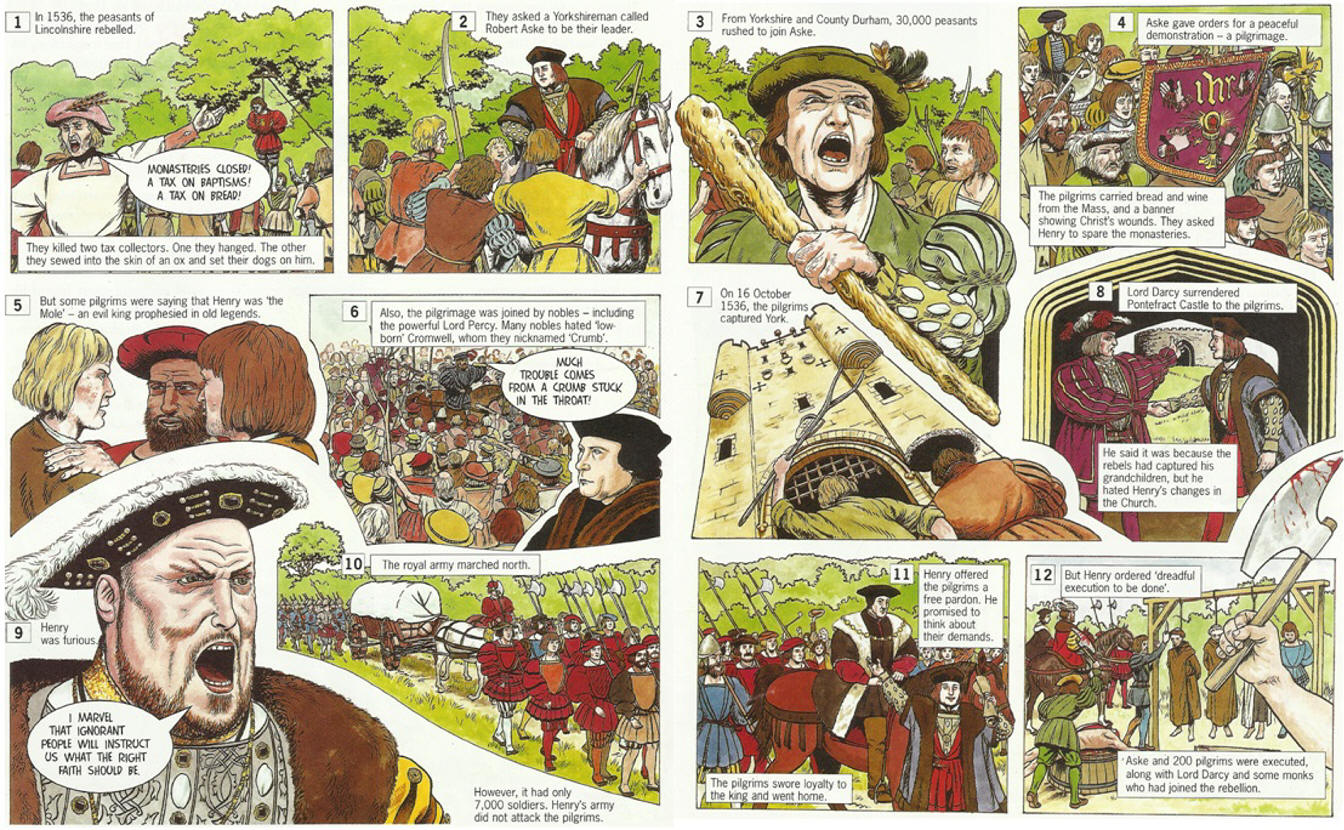|
Part
#2
Evangelicalism
rejected the skeptical
rationalism and
deism
of the Enlightenment.
|
Second
Great Awakening
enhances both Methodism and Baptist membership.
A populism rooted in the individualism of Lutheranism and communicated by
E. Smith.
Calvinism lost New England to the
Unitarianism
spread by of Boston preacher
W. E.
Channing.
He stressed the oneness of God,
Geographical separation occurred.
The Southern dominations
stressed Private Personal Protestant
and winning souls for Christ. Northern Public Protestants stress
improving social and economic wellbeing.
Southern success led Evangelist
Dwight Moody's
to dominate northern urban areas. |
Geographical separation occurred.
The Southern dominations
stressed Private Personal Protestant
and winning souls for Christ. Northern Public Protestants stress
improving social and economic wellbeing.
Southern success led Evangelist
Dwight Moody's
to dominate northern urban areas. |
|
# 3
Social Gospel
Movements |
Industrialization sharpened relations between geographic denominations.
W. Rauschenbusch,
a NY Baptist minister became a leading figure in a Social
Gospel Movement.
The
Federal Council of Churches in Christ was formed to enhance
wellbeing.
It became the center of modern Protestantism.
|
Atheist philosophies
like
Nihilism and
Darwinism plus a lack of improved urban wellbeing ended
many evangelical urban activities and led to the rise of
Christian fundamentalism. These militant anti-modernists were
led by William Jennings Bryant. The
National Association of Evangelicals formed in 1942 as a for
less militant, docile evangelicals. |
|
# 4
Modern Evangelicalism |
Theology: 1) Conversions by a new birth experience with God
2) reliance on the bible as the ultimate authority, 3) focus on
Christ's sacrifice on the cross and 4) an activism drive to share
their faith. The first three are directly related to Luther and
missionary work is related to
German Pietism.
Reverend
Billy Graham was a Southern Baptist minister who was strongly
influenced by Luther He began Modern Evangelicalism on 9/25/49 with a
planned 3 weeks LA revivals It was expanded to twice the size with
five weeks added after W.R. Hearst newspapers provided positive
publicity. Reverend Graham accelerated the move away from mainline
Protestantism toward evangelical Protestantism. As a result, the
Southern Baptist Convention doubled to almost 14,000,000
members. Mega churches resulted.
Pentecostalism, the
Holiness
Movement, and the
Charismatic Movement
were all based on individual conversion. They were a response to the
Sexual Revolution, the Women's Movement , Gay Rights and the social
disruptions of the 1960's and 70's.
|
In 1979
Jerry Farwell
revived the
Assertive Fundamentalism of the 1920's with his
Moral Majority. He used
PACs, mobilized mass communication and his large audience. helped
elect President Ronald Reagan. This made the
Christian
Right a dominate political player. In 2000 George Bush became
our second modern
evangelical president. Jimmy Carter was the first.
Support for the
Christian Right has been limited. The moral majority folded and its
successor, the
Christian Coalition of America never reached three million
members.
Militant Fundamentalists are intensely moralistic and
politically active. They are the true hairs of Calvinism. Most
evangelicals are not militant fundamentalist. They are less
belligerent, more toward the
political center, conservative, and represent about 25% of our population.
Eighty-one percent voted for Donald Trump.
|




